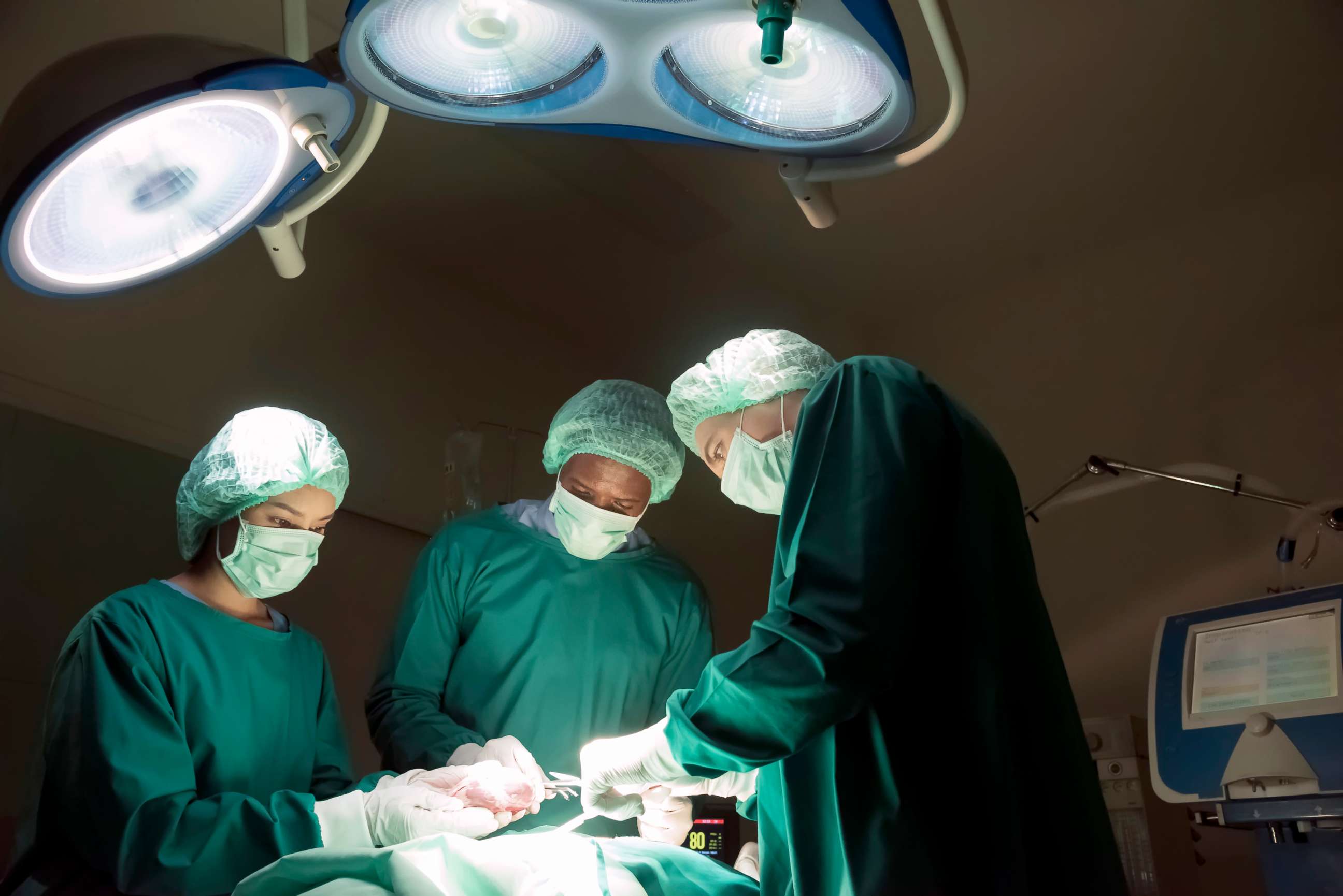Doctor donates kidney to patient
Transplant nephrologist was perfect match for patient-turned-friend.
This is a MedPage Today story.
It's rare that a transplant nephrologist becomes a kidney donor -- but that's exactly what happened to Dr. Aji Djamali last month.
Not long into his journey to becoming a nephrologist and surgeon, Djamali knew he wanted to donate his kidney. With the rare blood type B, he knew he could make an ideal match for a patient one day.
"For me, it's extremely appealing to help someone as a kidney donor," Djamali told MedPage Today. "I thought it was the extreme act of courage, bravery, love, and kindness."
Djamali met that patient, John Jartz, about eight years ago, when he was head of the UW Health Transplant Center in Madison, Wisconsin.
The two became unusually fast friends, both describing an instant chemistry when they met -- long before they knew they'd be the perfect match in terms of organ donation.

Jartz, 68, had been diagnosed with polycystic kidney disease in 2014 and knew he'd likely need a kidney transplant eventually. So he and his wife toured four transplant centers to decide where to eventually have the procedure.
When they met Djamali, 53, and his team, Jartz said he "could just feel a chemistry that developed, which was unusual."
"I wasn't expecting that with a doctor," he noted in a video provided by UW Health. "I could sense he was passionate about what he was doing, and passion is so important in terms of how you approach things ... I got the feeling he cared for people, and that was something he tried to make sure ran through the organization."
"And he seemed like a fun guy, someone you would really like to talk to," said Jartz, a retired attorney for the Quaker Oats Company in Chicago.
Djamali affirmed the feeling was mutual, "When he said he wanted to be followed by us, that meant a lot to me, because we as physicians are human beings and at the end of the day, we want to do the right thing and be valued by patients."
Their friendship grew over the years that Jartz was monitored by UW Health, and ultimately, the care team confirmed that Jartz would need a transplant. It was ideal to do the procedure before he needed dialysis, they said.
But during that time, Djamali was offered a position as the chair of medicine at Maine Medical Center, an opportunity too good to pass up.
He broke the news to Jartz at a dinner meeting. After talking about his new job, he said he had another great opportunity, this time for Jartz -- a donor who also had blood type B.
Jartz asked who it was, "and [Djamali] said, 'me.'"
"I lost it because, essentially, what someone is telling you when they say they want to be your donor, is, 'I want to save your life,'" Jartz said. "It just is really meaningful."
Though Djamali had long known he wanted to be a kidney donor, his wife had asked him to wait until his kids were grown. Now that their youngest was in college, Djamali knew the time was right.
An experience that he had as a student shaped his outlook on organ donation. When he was a 22-year-old medical student in France, Djamali -- who is from Tehran -- was hit by a car while biking to a friend's house for dinner. He had multiple skull fractures and significant brain bleeding, and had to be rushed into emergency surgery. He spent three weeks recovering in the hospital.
"All of that made me realize what happens when you're on the other side [as a patient]," Djamali said. "You value life because clearly that was almost the end of it. It also gives you perspective and makes you want to do the right thing even more."
Though blood type is less important in organ donation matches than other factors, Djamali said he and Jartz were a near-perfect HLA match. HLA stands for stands for human leukocyte antigen. These are proteins or "markers" found on cells that allow the body to recognize what belongs, or doesn't, in one's body.
They were only slightly mismatched on class I HLA, but they were a perfect match on class II HLA, which is the "single most important predictor of long-term outcome," Djamali said.
On June 29, UW Health transplant surgeons removed Djamali's kidney and placed it inside of Jartz.
"He was the right person who inspired me, encouraged me, and trusted me," Djamali said. "It's a privilege to be in this position, and that is a reward to me."
Djamali said he's long been focused on emphasizing the human side of medicine, noting that he would teach trainees to put themselves in their patients' shoes, and make patients feel they're part of decision making, rather than issuing orders.
He cited the Dalai Lama's philosophy as providing guidance for how he practices: "If you want to make people happy, practice kindness, and if you want to make yourself happy, practice kindness," he said. "We're living in a challenging world and [kindness] means a lot to people."



